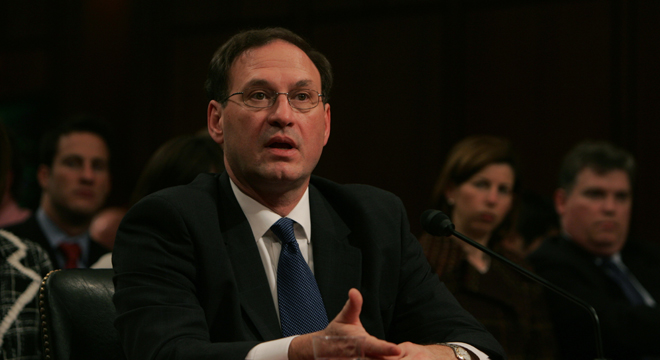On the first day of health care reform arguments before the Supreme Court, two justices needled a top Obama lawyer for simultaneously calling the fine that will be paid under the law for not purchasing insurance a “penalty” and a “tax.”
The confusion arises because of the administration’s argument that the power to enforce the individual mandate is rooted in Congress’ taxing power — but that the mechanism itself is designed to be a penalty, not a revenue-generating policy.
The narrow but important distinction created a communication challenge for the lawyer representing the Obama administration.
U.S. Solicitor General Donald Verrilli used the phrase “tax penalty” multiple times to describe the individual mandate’s backstop. He portrayed the fee as a penalty by design, but one that functions as a tax because it’s collected through the tax code.
“General Verrilli, today you are arguing that the penalty is not a tax. Tomorrow you are going to be back and you will be arguing that the penalty is a tax,” said Justice Samuel Alito, in one of the few laugh lines throughout the 90 minutes of argument Monday.
The remark underscores the fine line the White House is walking in its argument. On one hand, it says the backstop is not a tax, because that could subject it to the Anti-Injunction Act — the focal point of Monday’s arguments — and delay a ruling to at least 2015. On the other, they claim that the power to impose a penalty derives from Congress’ broad taxing power. That’s in part because calling it a tax makes defending the mandate easier — Congress’ power to levy taxes is less in question than its power to require people to do things.
Justice Elena Kagan asked whether refusing to buy insurance would constitute breaking the law, to which Verrilli responded that if people “pay the tax, then they are in compliance with the law.” That caught the attention of Justice Stephen Breyer.
“Why do you keep saying tax?” Breyer interjected, to more laughs.
The justices, particularly the four Democratic-appointees, and Justice Antonin Scalia, appeared skeptical that the fine constitutes a tax.
The distinction is nuanced, but key to one of the administration’s arguments: that though its power to enforce the mandate comes from Congress’ broad authority to tax, the measure in question isn’t itself a tax. In other words, the taxing power allows Congress to do more than simply raise revenue.
Under questioning, Verrilli carefully described the fine as a penalty for the purposes of the Anti-Injunction Act. But the subtle distinction being drawn by the administration makes these sorts of verbal missteps difficult to avoid.










